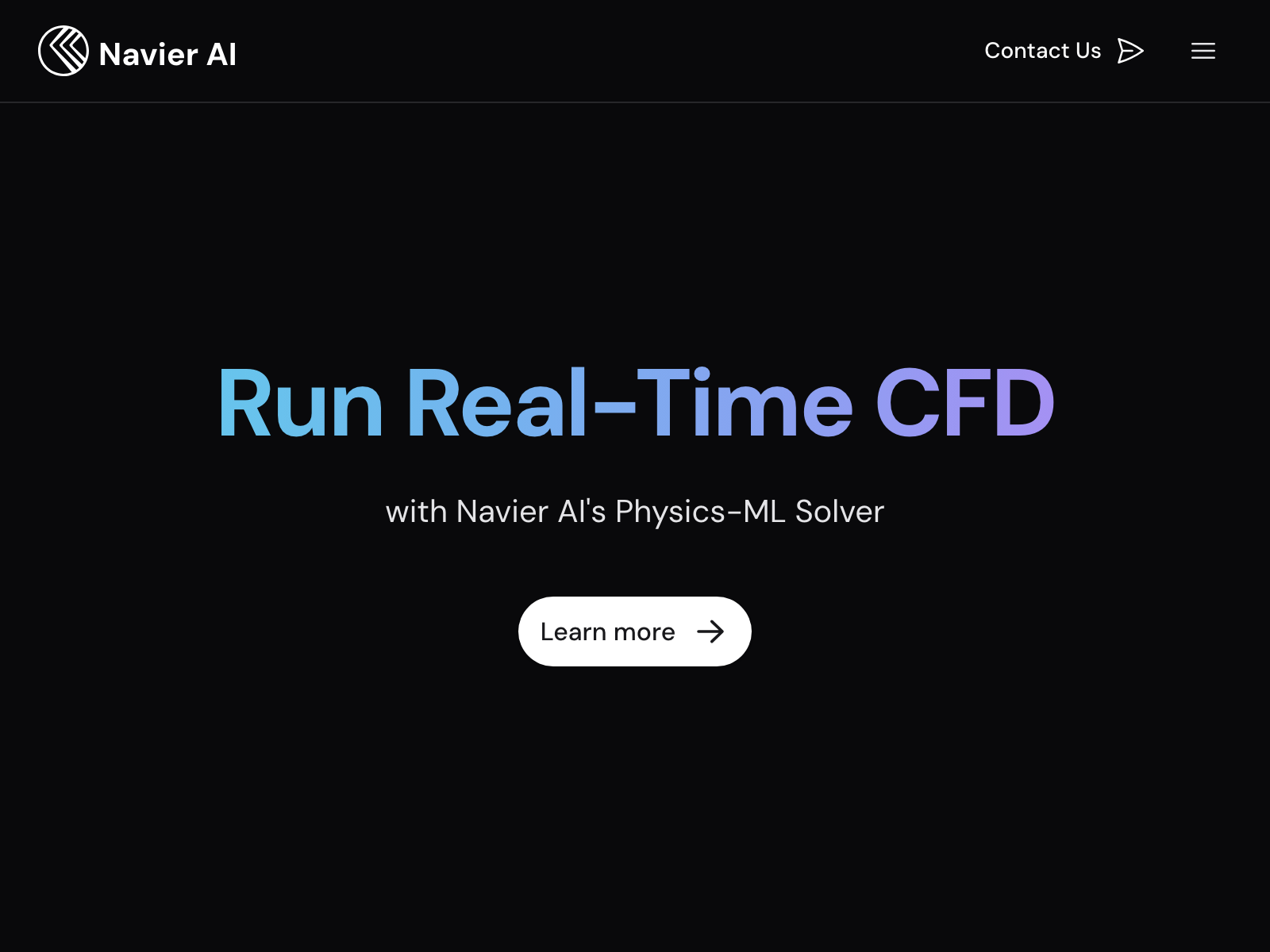Navier AI: Accelerating Simulation with Physics-ML

Navier Ai Overview
Navier AI is an innovative AI-powered simulation tool that is revolutionizing the way we approach complex simulations. By leveraging advanced physics-based machine learning models, Navier AI is able to generate 1000x faster simulations, enabling researchers and engineers to explore and analyze complex systems with unprecedented speed and accuracy.
In our in-depth review, we'll take a closer look at the key features, use cases, and advantages of Navier AI, as well as explore its pricing and alternative options in the market.
Navier Ai Key Features
-
Physics-ML Solver: Navier AI's core technology is its physics-ML solver, which is trained on massive amounts of high-quality simulations and fine-tuned to deliver lightning-fast results without sacrificing accuracy.
-
Scalable Performance: Navier AI's architecture is designed for scalability, allowing users to handle large-scale simulations with ease, paving the way for groundbreaking research and product development.
-
User-Friendly Interface: The Navier AI platform boasts a intuitive and user-friendly interface, making it accessible to users of all technical backgrounds, from seasoned researchers to aspiring engineers.
-
Seamless Integration: Navier AI seamlessly integrates with a variety of existing simulation tools and workflows, enabling users to streamline their processes and maximize their productivity.
Navier Ai Use Cases
Navier AI's versatility makes it applicable to a wide range of industries and applications, including:
- Fluid dynamics simulations for aerospace and automotive engineering
- Structural analysis for civil and mechanical engineering
- Material science research and development
- Renewable energy system modeling and optimization
- Biomedical engineering and drug discovery
Navier Ai Pros and Cons
Pros:
- Unparalleled simulation speed, up to 1000x faster than traditional methods
- Highly accurate results due to the advanced physics-ML solver
- Scalable and flexible architecture to handle large-scale simulations
- User-friendly interface and seamless integration with existing tools
- Applicable to a broad range of industries and use cases
Cons:
- Steep learning curve for users unfamiliar with machine learning and simulation techniques
- Potential for high computational requirements for large-scale simulations
- Ongoing maintenance and updates may be required to ensure optimal performance
Navier Ai Pricing
| Plan | Price |
|---|---|
| Basic | $99/month |
| Pro | $499/month |
| Enterprise | Custom Pricing |
Navier Ai Alternatives
While Navier AI stands out as a leading simulation tool, there are a few alternative options worth considering:
- Ansys Fluent (opens in a new tab): A comprehensive computational fluid dynamics (CFD) software suite with a wide range of simulation capabilities.
- OpenFOAM (opens in a new tab): An open-source CFD software package known for its flexibility and customization options.
- COMSOL Multiphysics (opens in a new tab): A powerful simulation platform that enables the modeling of multiple physics phenomena simultaneously.
Navier Ai FAQ
-
How does Navier AI's physics-ML solver work? Navier AI's physics-ML solver is trained on a vast dataset of high-quality simulations, enabling it to learn the underlying physical principles and patterns. This allows the solver to generate accurate results much faster than traditional simulation methods.
-
What types of simulations can Navier AI handle? Navier AI is capable of handling a wide range of simulations, including fluid dynamics, structural analysis, material science, and renewable energy systems, among others. The platform's flexibility and scalability make it suitable for a variety of industries and use cases.
-
How does Navier AI compare to other simulation tools in terms of accuracy and performance? Navier AI's physics-ML solver is designed to deliver unparalleled simulation speed, up to 1000x faster than traditional methods, without compromising accuracy. This sets Navier AI apart from many of its competitors, making it a highly attractive option for researchers and engineers seeking to maximize their productivity and explore complex systems more efficiently.
-
What level of technical expertise is required to use Navier AI? Navier AI's user-friendly interface and intuitive design make it accessible to users with varying levels of technical expertise. While a basic understanding of simulation techniques and machine learning concepts is helpful, Navier AI is designed to be approachable for users of all backgrounds, from seasoned researchers to aspiring engineers.
Visit Navier AI's website to learn more (opens in a new tab)